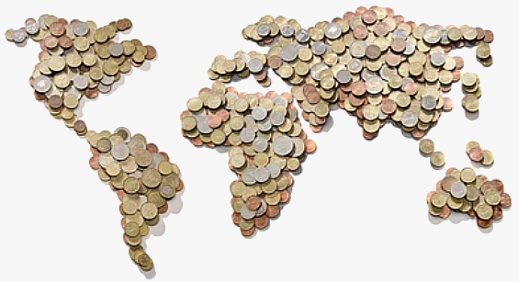Accredited InvestorsAltcoinAnatoli UnitskyAnti-Money Laundering (AML) In CryptoAPIArbitrageArtCoin TokenArticle DirectoryASICAuction Terminology GlossaryBasics of Stock Market InvestingBear MarketBest Crypto Payment Provider In the WorldBitcoinBlockchainBlockchain ConfirmationBlockchain Consensus MechanismBlockchain ForkBlockchain GlossaryBored Ape Yacht ClubBuild a Business That OutperformsBull MarketBuying SkyWay SharesByzantine Fault Tolerance (BFT) ExplainedCasascius CoinCentral Bank Digital Currency (CBDC)Centralized Crypto ExchangeCoinCoinsetCold WalletCollateralCommodity Futures Trading Commission (CFTC)Cross-Chain TechnologyCRUCrypto ExchangeCrypto GlossaryCrypto JokesCrypto Terms to KnowCrypto TickerCryptocurrencyCryptographyCryptojackingCryptounit BlockchainCryptounit GlossaryCryptounit ProgramdApp (Decentralized Application)Dead CoinDecentralized Exchange (DEX)Decentralized Finance (DeFi)Difference Between Bitcoin and EthereumDifferent Ways of Investing MoneyDigital CurrencyDistributed LedgerDo Your Own Research (DYOR)Dollar Cost Averaging (DCA)Dow Jones Industrial Average (DJIA)EncryptionERC-20ERC-721EthereumEvoScentFear Of Missing Out (FOMO)Fear, Uncertainty and Doubt (FUD)Fiat MoneyFNT Fintech CompanyGenesis BlockGlobal Unit PayGlossary of Banking TermsGlossary of Business TermsGlossary of Financial TermsHalvingHODLHot WalletHow Do I Start InvestingHow Rich is Satoshi Nakamoto?How to Create a BlockchainHow to Find Private InvestorsHow to Get Into FintechHow to Program Smart ContractsI Am Thrilled to Be a Part of This Global ProjectInitial Coin Offering (ICO)Initial Public Offering (IPO)Initial Token Offering (ITO)Innovation Basalt TechnologyInnovative Transportation TechnologiesInternational Bank Account Number (IBAN)Investing in Gold Mining StocksInvesting in Gold MiningJagerJoy of Missing Out (JOMO)Know Your Customer (KYC)LedgerLiquidity in CryptocurrencyMaker and Taker Fees in Crypto TradingMarket Capitalization (Market Cap)Meme CoinMetal Credit CardMetaMaskMillenials Now Have Access to Generational WealthMy Best Investment EverNew Digital EvolutionNFT GlossaryOff-Chain TransactionsOn-Chain TransactionsOpen Edition NFTPeer-to-Peer (P2P)Personal Loan GlossaryProbably the Best STO on the MarketProof of Stake (PoS)Real Estate Glossary of TermsReal Estate Investing GlossaryRebase TokenSecurities and Exchange Commission (SEC)Security Token ExchangesSecurity Token Offering (STO)Soulbound Decentralized Identities for Security TokensSoulbound ID Launch by Stobox Proves a SuccessSoulbound TokensStoboxStock Market GlossaryTestimonialsTether Platform and Token (USDT)UnitEx ExchangeUnitsky String TechnologiesUNTBUSDUValidatorWe Started Investing When We Were 25What are Blue Chip NFT?What are Blue Chip Stocks?What are Crypto Assets?What are Crypto Smart Contracts?What are CryptoPunks NFT?What are Digital Assets?What are Digital Collectibles?What are Gas Fees?What are Gas Wars?What are Hashmasks?What are Non Fungible Tokens?What are Non-Sufficient Funds (NSF)?What are Soulbound Tokens (SBT)?What are Stablecoins in Crypto?What are Transactions Per Second (TPS)?What are Utility NFTs?What are Utility Tokens?What Does Burning Crypto Mean?What Does Diamond Hands Mean?What Does Paper Hands Mean?What Does To The Moon Mean?What Does WAGMI Mean?What Happened to Satoshi Nakamoto?What is a 51% Attack?What is a Baby Boomer?What is a Backlink?What is a Banner?What is a Barcode?What is a Bid-Ask Spread in Crypto?What is a Block in Blockchain?What is a Block Reward?What is a Blockchain Address?What is a Blockchain Node?What is a Blockchain Oracle?What is a Blog?What is a Bond?What is a Bot?What is a Broker?What is a Business Accelerator?What is a Cash Cow?What is a Commercial Bank?What is a Commodity?What is a Con?What is a Credit?What is a Credit Limit?What is a Credit Rating?What is a Crypto Airdrop?What is a Crypto Bridge?What is a Crypto Scam?What is a Crypto Token?What is a Crypto Wallet?What is a Crypto Whale?What is a Crypto Winter?What is a Cryptocurrency Public Ledger?What is a Cryptocurrency Roadmap?What is a DAO?What is a Dark Pool?What is a Day Trader?What is a Dead Cat Bounce?What is a Default?What is a Derivative?What is a Digital Credit Card?What is a Fiscal Quarter?What is a Fungible Token?What is a Governance Token?What is a Grace Period?What is a Hard Fork?What is a Hot Wallet?What is a Hybrid Blockchain?What is a Hybrid PoW/PoS?What is a Joint Account?What is a Market Cap?What is a Merkle Tree in Blockchain?What is a Mining Farm?What is a Nonce? What is a PFP NFT?What is a POS System?What is a Prepaid Card?What is a Private Blockchain?What is a Private Key?What is a Public Blockchain?What is a Public Key?What is a Reserve Currency?What is a Ring Signature?What is a Routing Number?What is a Rug Pull in Crypto?What is a Safe Deposit Box?What is a Satoshi?What is a Security Token?What is a Seed Phrase?What is a Shitcoin?What is a Sidechain?What is a Soft Fork?What is a Spot Market?What is a State Bank?What is a SWIFT Code?What is a Tax Identification Number (TIN)?What is a Time Deposit?What is a Transaction Account?What is a Variable Interest Rate?What is a Virtual Assistant (VA)?What is a Virtual Card?What is a Virtual Currency?What is a Visa Card?What is a Whitelist in Crypto?What is a Whitepaper?What is Accounts Payable (AP)?What is AMA in Crypto?What is Amortization?What is an Accrual?What is an ACH Transfer?What is an Actuary?What is an Addendum?What is an Algorithm?What is an Angel Investor?What is an Annuity?What is an Asset?What is an ATM?What is an Atomic Swap?What is an Audit?What is an Avatar?What is an EIN?What is an Embargo?What is an Entrepreneur?What is an IDO (Initial Dex Offering)?What is an Interest Rate?What is an Internet cookie?What is an Investment Bank?What is an NFT Drop?What is an NFT Floor Price?What is an Ommer Block?What is an Orphan Block?What is an Outstanding Check?What is an Overdraft?What is Artificial Intelligence (AI)?What is B2B (Business-to-Business)?What is B2G (Business-to-Government)?What is Bartering?What is Bitcoin Dominance?What is Bitcoin Pizza Day?What is Blockchain Immutability?What is Blockchain Used For?What is BRICS?What is Business-to-Consumer (B2C)?What is C2C (Customer to Customer)?What is Capitalism?What is Catfishing?What is CFD Trading?What is Check Kiting?What is Cloud Mining?What is Communism?What is Content Marketing?What is Decentralization in Blockchain?What is DeFi in Crypto?What is Delisting?What is Depreciation?What is Digital Marketing?What is Diversification?What is Double Spending?What is Dumb Money?What is Dumping?What is Earnings Per Share (EPS)?What is Economics?What is Email Marketing?What is Equity?What is Etherscan?What is Fintech?What is Foreign currency?What is Forex?What is Fundamental Analysis (FA)?What is GameFi?What is Generative Art NFT?What is Gwei?What is Hard Currency?What is Hash Rate?What is Hashing in Blockchain?What is Inflation?What is Initial Game Offering (IGO)?What is Interest?What is Interest Income?What is Mainnet?What is Mastercard?What is Metaverse in Crypto?What is Mining in Cryptocurrency?What is Minting NFT?What is Mobile Banking?What is Money Laundering?What is NFT Alpha?What is NFT Metadata?What is NFT Rarity?What is NGMI Meaning?What is Nominal Interest Rate?What is Online Banking?What is Open-End Credit?What is OpenSea NFT Marketplace?What is Personal Identification Number (PIN)?What is Play-to-Earn?What is Polygon?What is Proof of Authority (PoA)?What is Proof of Work (PoW)?What is Public Key Cryptography?What is Pump and Dump?What is Quantum Computing?What is Refinancing?What is Retail Banking?What is Ripple?What is Sharding?What is Slippage in Crypto?What is Smart Money?What is Solvency?What is Soulbound ID?What is SSL?What is Staking in Cryptocurrency?What is Technical Analysis (TA)?What is Testnet?What is the Ask Price?What is the Better Business Bureau (BBB)?What is the Bid Price?What is the Dark Web?What is the InterPlanetary File System (IPFS)?What is the Gold Standard?What is the Lightning Network?What is the Prime Rate?What is the Sandbox?What is the Secondary Market?What is the World Bank?What is Tier 1 Capital?What is Tokenomics?What is TRC-20?What is Universal Banking?What is Unspent Transaction Output (UTXO)?What is Usury?What is Volatility in Crypto?What is Wash Trading?What is Web3?What is Whisper?What is XRP?What is Zero-Knowledge Proof (ZKP)?Who is Beeple?Who is Satoshi Nakamoto?Who is Vitalik Buterin?Why Tokenization is a Safe HavenWhy You Should Try Your Hand at Trading
What is Dumping?
- Home
- Glossary of Business Terms
- What is Dumping?
Dumping is a widely debated term in the realm of international trade.

It refers to the practice of exporting goods to a foreign market at prices lower than those charged in the exporter's domestic market.
What is Dumping?
Dumping is the act of selling products in a foreign market at a price lower than the cost of production or below the prices charged in the exporting country. It is often employed as a strategic tool to gain a competitive advantage by undermining local businesses in the importing country.
The Mechanism of Dumping
Dumping occurs when manufacturers intentionally lower prices to penetrate foreign markets. By flooding the market with cheap goods, exporters seek to force local competitors to reduce their prices or even drive them out of business. Once the competition is weakened, the exporting country can then revert to normal pricing levels.
Advantages of Dumping
Dumping offers several advantages for the exporting country. First, it enables the penetration of foreign markets by undercutting domestic competitors. Additionally, it may help alleviate excess production capacity, allowing manufacturers to maintain higher production levels and economies of scale. Furthermore, the practice can provide valuable market intelligence and insights for exporters.
Disadvantages of Dumping
While dumping may seem advantageous for the exporter, it can have detrimental effects on the importing country's economy. Dumped goods can disrupt domestic industries by undermining their competitiveness and profitability. This, in turn, can lead to job losses, reduced investment, and negative ripple effects across related sectors. Moreover, dumping can create an unfair playing field, distorting international trade and impeding economic development.
The Role of Subsidies
To sustain dumping practices, exporting countries often provide subsidies to manufacturers. These subsidies compensate for the losses incurred when selling products below the cost of production. However, subsidies can become a burden on the exporting country's economy over time, as they may strain public finances and distort resource allocation.
International Regulations and the WTO
Dumping is a subject of significant concern in the international trade arena. The World Trade Organization (WTO) plays a pivotal role in regulating and addressing dumping practices. While the WTO does not categorize dumping as inherently unfair, it allows countries to impose anti-dumping duties if they can prove that the dumped goods are causing harm to their domestic industries.
Identifying Dumping
Identifying dumping requires careful analysis. Key indicators include significant price disparities between the exporter's domestic and foreign markets, excessive supply, sustained financial losses, and the impact on domestic producers in the importing country. Formal investigations by trade authorities are often necessary to confirm allegations of dumping.
Mitigating Dumping Practices
To prevent dumping, countries rely on trade agreements and fair competition regulations. Through such agreements, countries commit to refraining from dumping and imposing tariffs on specific industries or nations. By ensuring adherence to these agreements, countries can create a level playing field for fair competition and deter the negative consequences of dumping.
The Complexities of Dumping
Dumping is a complex issue that necessitates a nuanced understanding of its economic, legal, and social implications. Policymakers must strike a balance between protecting domestic industries from unfair competition and ensuring the benefits of international trade.
Dumping remains a contentious practice in the realm of international trade. While it offers advantages for exporting countries, it can have severe repercussions for domestic industries in the importing nations. By understanding the dynamics of dumping, the role of subsidies, and the regulatory frameworks in place, we can work towards fairer trade practices that promote economic growth and stability.
Efforts to address dumping should focus on fostering transparency, encouraging dialogue among trading partners, and strengthening the enforcement of existing regulations. Collaborative initiatives and multilateral agreements, such as those facilitated by the WTO, play a crucial role in addressing dumping and ensuring a level playing field for all participants in global trade.
Moreover, it is essential for countries to prioritize the development of domestic industries, innovation, and competitiveness. By investing in research and development, promoting entrepreneurship, and fostering a supportive business environment, countries can enhance their ability to withstand unfair competition and mitigate the impact of dumping.
Additionally, consumer awareness and responsible buying practices can contribute to the fight against dumping. By supporting local industries and choosing products that adhere to fair trade principles, consumers can send a message that they value ethical and sustainable business practices.
Related Articles

Dow Jones Industrial Average (DJIA)
Over the years, the DJIA has evolved to include 30 large-cap stocks that are considered to be leaders in their respective industries.

What is Depreciation?
When a company purchases a tangible asset, such as a vehicle or machinery, it does not expense the entire cost in the year of purchase.

What is a Dark Pool?
They have become increasingly popular among institutional investors as they provide a way to trade large volumes of securities without revealing their intentions until after the trade is executed and reported.

What is Capitalism?
It is characterized by the pursuit of profit and the market exchange of goods and services through supply and demand.
- Home
- Glossary of Business Terms
- What is Dumping?